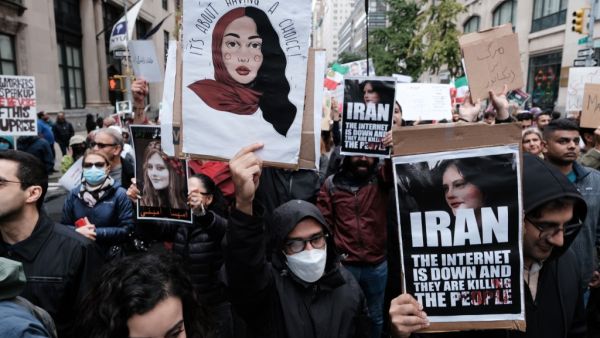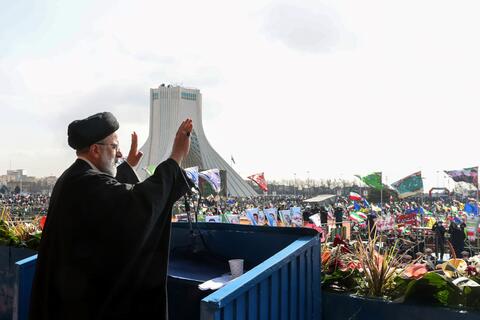ALBAWABA - Iranian authorities announced a plan to install "smart cameras" nationwide to detect women who fail to wear the hijab.
The move comes amid continuous protests against the government's strict hijab rules that followed the death of activist Mahsa Amini, who was rounded up last September for allegedly wearing the headcover improperly.
The 22-year-old woman was killed on the hands of the country's morality police days after Sept. 13 arrest. She was reportedly beaten, slipped into a coma and died three days after her detention, triggering nationwide protests against what is widely seen as the absence of women rights.
If there was any doubt over #Iran's commitment to the mandatory hijab after the death of #MahsaAmini, it's over.
— Azadeh Moshiri (@Azadeh_Moshiri) April 8, 2023
Police are now installing smart cameras to identify women who are walking around unveiled. Here are some more details + context for @BBCNews. pic.twitter.com/g5qK4UqV9n
Iran's police chief Ahmad-Reza Radan confirmed: "From next Saturday, people who remove their veil will be identified, using smart equipment."
Iranian police said in a statement that it will "take action to identify norm-breaking people by using tools and smart cameras in public places and thoroughfares."
It noted that forces will first send "the proof and warning messages to the violators of the hijab law," then if violators continue to break the law, the police "inform them about the legal consequences."
And this is happening while girls’ schools are being under chemical attacks all around Iran for a few months now and no smart cameras available to find out the responsible criminals ??♀️
— Rana Dadpour? (@_RDadpur_) April 8, 2023
More on these attacks ?? https://t.co/EJtAJG1tgJ#IranChemicalAttacks #MahsaAmini https://t.co/TFyfhPuBbu pic.twitter.com/nnpdFdCiei
The police statement coincided with news Saturday that dozens of poisoning cases targeting female schools were reported in Iran. Serial poisoning cases of schoolgirls have been going on for the past four months.
According to reports, by March 20 at least 1,200 schoolgirls were admitted to hospitals in several Iranian cities after they complained of poisoning-related symptoms.
A senior health official noted that the latest spate of mass illnesses affected by schoolgirls was caused by deliberate poisoning using "chemical compounds."
Many countries and human rights organizations have expressed concerns about restricted women's freedom in Iran and the serial poisoning attacks which aim to curb girls from attending schools.










